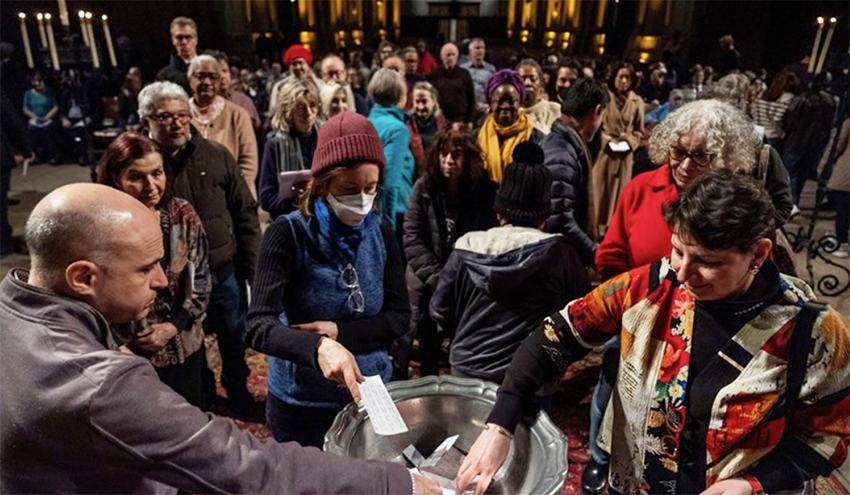Faith-based organizations across the United States have taken legal action against the Trump administration in response to executive orders that they argue infringe on religious freedoms and the right to assembly. These orders include the resumption of immigration enforcement in places of worship and the suspension of the federal refugee resettlement program.
A coalition of 27 religious organisations—including the Episcopal Church, other Protestant denominations, and several Jewish groups—has filed two lawsuits this month against the U.S. Department of Homeland Security. The lawsuits challenge the administration’s policies on the grounds that they prevent religious communities from practicing their faith by discouraging immigrants from attending services and engaging with faith-based support networks.
Religious leaders report that worshippers from immigrant communities, including those with legal status, are staying away from services out of fear of arrest or deportation. One such incident has already occurred at Iglesia Fuente de Vida church in Tucker, Georgia, where asylum-seeker Wilson Velasquez was detained by Immigration and Customs Enforcement (ICE) agents after his ankle monitor alerted authorities during a service.
Presiding Bishop of the Episcopal Church, Dr. Sean Rowe, condemned the administration’s actions, stating, “Immigrants and refugees are not at the edges, fearful and alone, but are the very centre of God’s story. We cannot worship freely if some among us live in fear. We are seeking the ability to fully gather and follow Jesus’s command to love our neighbours as ourselves.”
A separate lawsuit, led by Quaker organizations with support from the Cooperative Baptist Fellowship and a Sikh temple, alleges that the administration’s policies also violate the constitutional right to freedom of assembly.
In addition to legal action, churches and religious groups are mobilizing funds to support migrants affected by the policy changes. The freeze on refugee resettlement has forced Episcopal Migration Ministries to scale back its operations due to a lack of funding. In response, the Bishop of Minnesota, the Rt. Rev. Craig Loya, has established a migrant-support fund, with donations exceeding $10,000 from the diocese and contributions from over 100 individuals.
Faith leaders have also voiced concerns over President Trump’s recent ban on diversity, equity, and inclusion (DEI) initiatives, which has led to the cancellation of events such as Black History Month and Pride Month in federal agencies and some private companies. The Episcopal Church’s chief of mission program, the Rev. Lester Mackenzie, remarked, “This decision to pause Black History Month celebrations and DEI work puts us in a profound moment to reflect on what we, as a Church and as a people, choose to remember and choose to forget.”
Beyond immigration and DEI issues, the administration’s budget cuts have also affected faith-led environmental projects. Programs aimed at addressing climate change, such as tree-planting initiatives in urban areas, have been halted due to funding freezes. Faith in Place, a Chicago-based environmental nonprofit, had provided grants to faith groups in Wisconsin, Illinois, and Indiana for such projects. The organization’s CEO, the Rev. Brian Saunder, criticized the decision, stating, “It’s unconscionable to us that trees are now a partisan political tool.”
Further controversy has arisen over President Trump’s proposal to redevelop Gaza into what he described as the “Riviera of the Middle East.” Jewish activists and leaders have condemned the plan, with a full-page advertisement in The New York Times declaring, “Jewish people say NO to ethnic cleansing.” Meanwhile, the Vatican’s Secretary of State, Cardinal Pietro Parolin, has urged against forced deportations from Gaza, citing the refusal of neighbouring countries to accept displaced individuals. In contrast, the Zionist Organization of America has praised the plan, calling Trump “The Winston Churchill of our time.”
As religious communities continue to mobilize against these policies, legal battles and advocacy efforts are expected to intensify in the months ahead.
Photo: People place notes with their fears onto them into a basin during an interfaith vigil at St John the Divine Cathedral, New York last week.
Source:ChurchNews











